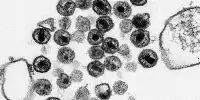According to a new study, young men who had a bad diet noticed a significant improvement in their depressive symptoms when they transitioned to a healthy Mediterranean diet. Depression affects many people and can have serious consequences. Medical treatment and counseling can often help reduce symptoms, but lifestyle changes, such as a nutritious diet, can also improve one’s health.
Depression is a widespread mental illness that affects roughly 1 million Australians each year. It is a major risk factor for suicide, which is the largest cause of mortality in young adults. The 12-week randomised control experiment was recently published in the peer-reviewed American Journal of Clinical Nutrition by experts from the University of Technology Sydney.
The study was the first randomised clinical trial to investigate the impact of a Mediterranean diet on depressive symptoms in young males, according to lead researcher Jessica Bayes, a PhD candidate in the UTS Faculty of Health (aged 18-25).
“We were startled by how eager the young men were to try a new diet,” stated Bayes. “Those assigned to the Mediterranean diet were able to dramatically change their original diets in a short period of time, with the help of a nutritionist.”
“It suggests that medical practitioners and psychologists should consider referring depressed young men to a nutritionist or dietitian as a key component of treating clinical depression,” she added.
We were startled by how eager the young men were to try a new diet. Those assigned to the Mediterranean diet were able to dramatically change their original diets in a short period of time, with the help of a nutritionist.
Jessica Bayes
Eating healthful foods stimulates the growth of “good” bacteria, which has a positive effect on neurotransmitter production. A constant diet of junk food, on the other hand, can produce inflammation that impedes production. When your neurotransmitter production is in good form, your brain receives these positive messages loud and clear, and your emotions reflect it. However, if production goes wrong, your mood may suffer as well.
Sugar, in particular, is thought to be a primary cause of inflammation, and it also feeds “bad” bacteria in the GI tract. It can, however, create a brief increase in “feel good” neurotransmitters such as dopamine. That is also bad for you, according to Rachel Brown, co-founder of The Wellness Project, a company that works with organizations to boost employee wellness. As a result, she explains, there is a brief sugar surge followed by a drop “that’s horrible for your mood.”

The research contributes to the developing subject of nutritional psychiatry, which seeks to investigate the impact of specific nutrients, foods, and dietary patterns on mental health. The study’s diet included a variety of colorful vegetables, legumes and wholegrains, oily salmon, olive oil, and raw, unsalted almonds.
“The primary goal was to increase diet quality with fresh wholefoods while decreasing intake of ‘fast’ foods, sweets, and processed red meat,” Bayes explained.
“There are numerous scientific reasons why we believe food affects mood. For example, our gut microorganisms produce almost 90% of serotonin, a neurotransmitter that makes us happy. There is accumulating evidence that these microorganisms can communicate with the brain via the vagus nerve, a process known as the gut-brain axis. To have healthy microorganisms, we must feed them fibre, which is present in legumes, fruits, and vegetables “she stated.
Approximately 30% of depressed patients may not react satisfactorily to traditional therapies for major depressive disorder, such as cognitive behavioral therapy and antidepressant drugs.
“Nearly all of our participants continued with the program, and many were eager to maintain the diet after the research finished, demonstrating how effective, tolerable, and useful the intervention was to them.”















